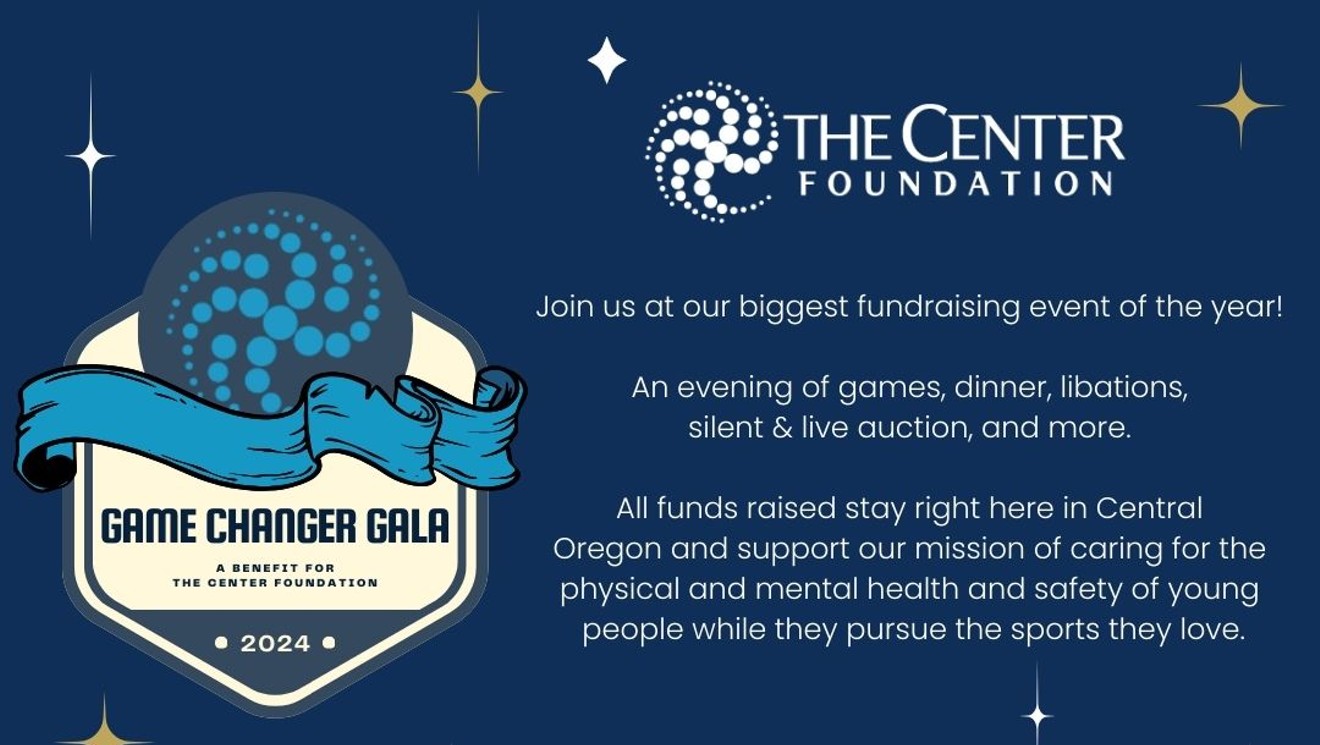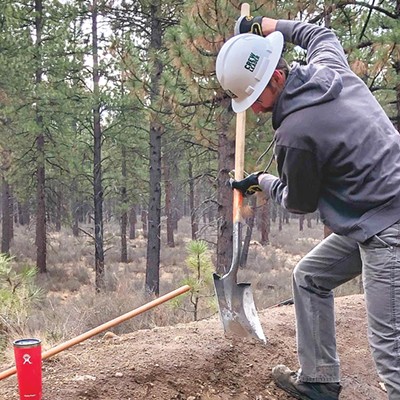Bend's new mayor, who is beginning his third term as a city council member, holds a Ph.D. in physics, started a series of high-tech companies and is very interested in alternative energies. He raced motocross in the early-'70s, is passionate about superconductivity and is pretty sure he's tested more water-heating solar panel designs than anyone out there. Last week we sat down with Clinton and discussed Bend's most pressing issues. Here's what he said. This interview has been edited and condensed. SW
Source: You've been one of the most vocal progressives in Bend for some time now. What's your experience been? How have you seen Central Oregon change for progressives?
Clinton: I don't think of myself as vocal but I have been advancing consistent themes since I started. I came to Bend in 1995, when the population was one-quarter of what it is now. Clearly there have been a large number of changes since then, most notably there are a lot more young people around. It gives the city a feeling of this-is-not-just-a-bunch-of-people-who-are-wanting-things-to-stay-the-same. They're looking for a more vital, semi-urban kind of experience even though most of them—and most everybody here—are here because of the natural setting and the opportunities for outdoor recreation.
As Bend's new mayor, tell us—What is the state of the city?
The state of the city government would be that we continue to have structural budget problems. We have a tax rate that is on the low side among cities in Oregon and is more appropriate for a small town, like Bend used to be, than it is for a bigger city that needs to provide more city-like services. One solution that would help is a change in the room tax. Have the visitors here pay a little more toward their fair share of the cost of the services that they need: police, fire and roads.
Let's talk about the Deschutes River. You called dredging Mirror Pond a "simplistic fix." What is the Jim Clinton solution for the Drake Park section of river that is fast filling with silt?
We need a much clearer definition of what the options are. Some people are really afraid. We can reduce that fear if we get more scientific about it. I'd like to see whatever happens enhance the river. Worry about the riparian areas near the edge, work towards making those more natural, more wildlife-friendly. It could be more like a showcase of not just a stagnant pond but an active wildlife area that people could appreciate. And it'd make the river healthier.
And what about the Bridge Creek Water Project? It's currently on hold after a LUBA remand and a federal court injunction. What is your strategy moving forward on this issue?
There got to be a pretty big disconnect between opponents of the water project and the city staff. The staff got the feel they were on the right track. Of the four people who got elected to the city council, all four of them were expressing serious reservations about the city's water project. To me, a $70 million project was asking too much.
You've been a city councilor for eight years. This term you said we'd see you take more of a leadership role on the council. How and where will we see you lead?
Helping the council to be more involved in a lot more decisions and projects. In some cases the city has gotten into hot water with some people in the community by not including them early and often. I'd like to see the council members more involved on some of the issues earlier, and working more closely with staff.
Is that going to involve council steering city staff instead of vice versa?
Sometimes the flow and authority can get a little out of balance. There have been a few cases, like this water project, where it didn't work out so well.
I understand you got your political start in the slow-growth movement. How have philosophies toward development changed over the years here?
In the last two years it's been a more pro-business council that's been very concerned about economic development and reducing government regulations on business. Now this latest group has got more experience under its belt. Doug Knight and Sally Russell have both been on the planning commission. I would expect that in the future there would be a lot more emphasis on good planning. During the big expansion of land-development ambitions, there was an urban growth boundary that Peter Gramlich and I voted against at the city council level—it was a little too big and not clearly defined how the city would provide infrastructure for all these new places. Now that's also back on the table, cause it didn't fly with the state. The debate now is—do it right or do it expediently. I'd like to see us do it right.
You've been working to create a science-focused university in Bend. Are you still pursuing that goal?
I have a vision for a small science, math and engineering-focused private college here. And associated with that would be a graduate school for advanced degrees in those areas. It's not in opposition to OSU-Cascades—it's another piece of the pie of what we need here.
In a recent Bulletin editorial you were called out for your support of a plastic bag ban in Bend. The editorial said that evidence of the bags' environmental impact is sketchy at best.
They made a mistake, which I tried to correct. They made it look like I was leading some initiative to ban plastic bags in Bend, but that's not the case. It's a state issue. There will be, at some point, a ban on plastic bags statewide. Somebody does need to address the problem: These plastic bags make a mess, not only on land, but in our oceans. I'll be trying to encourage those locally who favor the plastic bag ban to direct their energies to the Legislature. Personally, I think those bags are terrible.
Bend's sound ordinance has been a subject of much concern. How do you strike a compromise between venue owners, artists and music fans and Bend's cultural scene as well as those neighbors who have been affected by the sound from some concerts?
It's not easy to find. I think we need to look at it again. We need to make sure enforcement is applied uniformly. There are still aspects of it that are problematic.
The 18-person sewer committee seems to be doing what it's supposed to do: find solutions and save the city money. Will we see this model used for other projects?
There's the water project, sewer and roads. So, yeah, I think this is a good model that can be extended to other areas. You get a broad range of viewpoints.
What other projects need attention that we didn't touch on? Things like bike lanes...
I think at the top of the list is this question of accessibility. I'm working on proposing a sidewalk and accessibility initiative. The idea is when a street gets rebuilt, the city builds curb ramps. There are places where there are curb ramps but down the street there's missing sidewalk. Everybody needs the sidewalks. And bike lanes. A lot of people ride bikes around here but a lot of where people have to ride is unsafe. We need to look at that. The traffic safety advisory committee is the depository for these sorts of situations.
You're an active fellow. I ran into you hiking up around Green Lakes last summer. Do you have a favorite Central Oregon outing?
We like to go hiking in the mountain areas, like up near Broken Top where there's that nice glacial lake. We went up to check out Three Fingered Jack and see where the glacier melted. Now there's a lake—evidence of global warming. We like to go collect mushrooms in the fall and ride our motorcycles when it's not too cold.























